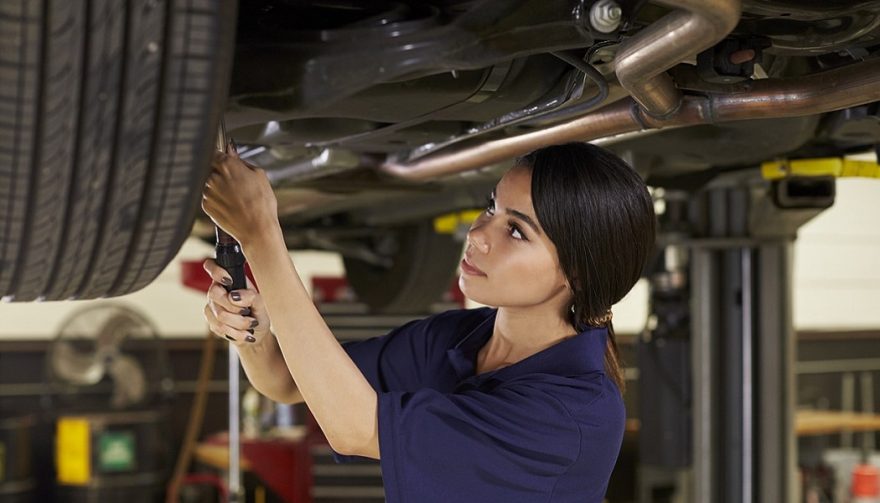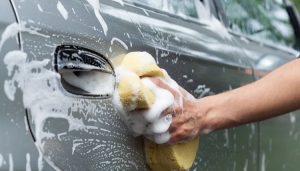
Want to know how to make your car last forever? Get to know your mechanic.
How to Make Your Car Last Forever: Don’t Skimp on Maintenance
If you’re wondering how to make your car last forever, take a look at taxi cabs. They stay in service until they have racked up half a million miles on them. Sometimes more.
Many people, though, find their personal cars start falling apart before 100,000 miles. That’s when their repair bills start getting big.
Everybody else’s experiences with car longevity lies in between these two extremes. If you want to know how to make your car last forever, here are some tips.
Vital Maintenance
Maintenance is key. Don’t neglect it. Lubricants protect expensive moving parts, and there are many of them inside your cars mechanical innards.
Oils, fluids and greases have a tough job to do, but are dirt cheap compared to the parts they protect. Engine oil is cheap compared to replacing a $5,000 engine.
Don’t fret the cost of five quarts of oil and change it often. When you’re talking to your mechanic, ask them how often he or she changes their car’s engine oil. You will be surprised.
Splurge on a high efficiency oil filter, too. This is crucial if your car uses synthetic engine oil. Synthetic oil lasts longer, so the filter needs to last longer too.
Antifreeze contains a lubricant to protect the expensive water pump’s seals and anti-corrosion additives to protect the radiator and aluminum intake manifold. They cost a lot of money to replace if they are ruined.
You should shoot for having your coolant flushed and replaced every 30,000 miles. Two gallons of anti-freeze is cheap prevention compared to expensive cooling system repairs.
Add a water remover and fuel system cleaner to the fuel tank every 3,000 miles. Or you could wait until the fuel injectors go bad from corrosion damage and filthy deposit build-up. New injectors will set you back about $1,000.
Automatic transmissions don’t normally last the life of the vehicle because their 10 quarts of fluid, a thin oil, rarely get replaced. A transmission overhaul will set you back several thousands of dollars. Fluid only costs $8 per quart, and the filter that cleans it will run about $20.Consider getting the fluid flushed every 30,000 miles as well.
That’s also a when you should have your spark plugs examined. It may be time you learned how to change spark plugs.
If a Part is Going to Break, Replace it Before It Fails
Having your timing belt replaced? Very good. You should have it done at the factory’s recommend interval. Otherwise, if you let the timing belt go past due and break, it will ruin the very expensive valve train, and possibly the even more expensive pistons that the valves will crash into when the belt breaks.
While it is all disassembled for the belt replacement, have your mechanic replace the water pump as well. The extra labor is nil, and the water pump typically won’t last till the next timing belt replacement anyway.
The above goes for your timing chain, as well, if your car has one. You don’t want to be running on borrowed time.
Of course, get a new thermostat while you’re at it. That’s a $20 part that will eventually fail, close shut, and make your engine overheat severely, with resulting damage. Compare that $20 to the cost of a new engine.
Know What Other Things Should be Replaced Before They Break
Like the thermostat, other things won’t last forever, and should be replaced before they fail. That’s how airplanes are maintained, and the reason is obvious. A mechanical failure is too dramatic to risk at 30,000 feet.
Brake fluid is very important. It absorbs moisture from the atmosphere, and that moisture causes corrosion within the expensive brake calipers. Even synthetic brake fluid, though it lasts longer, will still need to be replaced every so often. How often? When other brake work is being done. Don’t skimp on safety issues.
Air conditioners routinely lose a percentage of their refrigerant charge (Freon) from tiny bits of seeping. It’s normal.
But your very expensive air conditioner compressor contains many moving parts. These parts are lubricated by a special oil that circulates within the refrigerant. So as your car loses its Freon, it also loses its refrigerant oil that is supposed to protect the compressor.
Are you having Freon added this Spring to restore cooling? Then have some refrigerant oil added with it as well, or plan to buy an expensive new compressor and filter-drier soon. Spend a little now or a lot later. Besides, the refrigerant oil will help the compressor’s seals work better, and you will have better cooling.
A brake inspection every year is a great idea, for both economy and safety. If the brake pads don’t have enough life to make it to next year’s inspection, replace them now. If not, they will ruin your expensive brake rotors when they wear down to their metal backings. Common sense, like airplane maintenance. Replace it before it breaks and causes real trouble.
Budget Your Maintenance
How to budget for repairs? Typically, vehicle loans will be paid off completely around the same time cars hit the 100,000-miles mark. It just seems to work that way.
An average suburbanite drives 18,000 miles per year. When they hit 100,000 miles at about five years, the car is paid off. Congratulations. At that time start setting aside at least $100 a month for repairs and maintenance from your new freedom from car notes.





